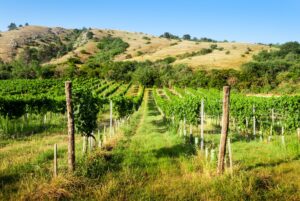The Company of Prophets – Open to All
 “You’re right, but you’re too young to know this.”
“You’re right, but you’re too young to know this.”
These words were actually spoken to a young woman by a graduate school advisor when she presented the results of her doctoral research. The faculty member advised her to go back to the data that had been collected previously and see whether there were statistics that would back up what she was presenting in her case studies, so they could be cited to back up her claims.
As it turned out, her sample fell right into the range of responses seen in the entire set of data collected over the multi-year period in which the program had been serving the community. When presented with the evidence, the advisor signed the paperwork for the young woman’s degree.
What is a Prophet?
We tend to think of prophets as being somewhat like fortune tellers. Those who can see what is coming and advise their clients accordingly have a long history of popularity. Will I meet Mr. Right? Will my children be healthy? Who will win the competition? What do you see in your crystal ball?
But a prophet, in religious terms, is not a fortune teller. A prophet is one who praises God, proclaims God’s love for all, and speaks this truth to power. A person who sees through the trappings of power and influence, whose heart is on fire for justice and who is willing to take risks to make the world a better place for all – this is a prophet.
Most prophets do not seek that role. They would be very happy to go about life unnoticed and living in peace with their families and friends. But something gets awakened inside their hearts and builds until they cannot resist it anymore. They must speak. When they do, the opposition begins.
Not all prophets realize the significance of what they are doing in the beginning. A question is asked and they answer truthfully, giving their opinion or an explanation of the reasons for the choice they have made. The opposition they face is not always obvious to them. They assume the questions that follow are a sign of the honest interest of the questioner. Sometimes that’s all it is. Other times, it leads to much more serious opposition.
The Call to Prophesy
In Hebrew and Christian scriptures, the prophet is called by God to speak on behalf of the poor and those of low status in their society. They call out a reminder to the people, “The word of the Lord came to me…” “Thus says the Lord…”
Prophecy is not limited to those who are educated or who have leadership roles, though sometimes prophets will move into leadership. For example, Moses is remembered as the one who led Israel out of Egypt at the time of the Exodus. He spoke the Lord’s words and brought the Law as dictated by the Lord to the community. He combined the roles of leadership and prophet. Moses had been raised by one of Pharaoh’s daughters, according to tradition, so he most likely had an education. However, when he was called by the Lord, he was a shepherd in another land, to which he had fled after killing an Egyptian overseer who was abusing a slave.
A large group of elders helped Moses and Aaron lead the people as they traveled through the Sinai Peninsula. A younger man named Joshua was his assistant. One day, “the Lord came down in the cloud and spoke to Moses.” This had happened before, but that day something different happened. The Lord shared the spirit that he had poured into Moses with the seventy elders of the people. In a sign of what had happened, all of them began to prophesy, to praise God and share the Lord’s message.
Two elders had remained in camp rather than go out into the desert with Moses. (Somebody’s got to stay home and make sure everything is in order!) They too began to prophesy. A young man hurried out to let Moses know what was going on. Joshua, advised Moses to make them stop what they were doing. However, Moses refused. Instead, he declared, “Would that all the people of the Lord were prophets! … that the Lord might bestow his spirit on them all!” (Num 11:25-29)
Would that all the people of the Lord were prophets!
Can you imagine what kind of world that would be, if all were prophets? Certainly more inclusive. Since the Lord excludes no one from love, all would be welcomed and their contributions and insights valued.
Jesus himself made that point. One day, John came to him to report that someone else was driving out demons in his name. John wanted Jesus to put a stop to that encroachment on his power. But Jesus was not upset. “Do not prevent him.” Why? Because “whoever is not against us is for us.” Anyone who is working for justice, acting lovingly, sharing something as simple as a glass of water because the recipient belongs to Christ, will be rewarded.
Jesus went on to speak about how we are to support the little ones who trust and believe in him. He spoke in terms that have been misunderstood through the ages. He was speaking hyperbolically – using exaggerated terms and examples to make a point. The words he spoke were not literal instructions for how to treat other people or even oneself. For example, he spoke of cutting off a hand or a foot if it causes someone to turn away from God. He also spoke of a terrible punishment that came to be used literally to punish those whose behavior, especially in the sexual realm, was not socially acceptable. These words were not meant to be used the way they were interpreted in later years. (Mk 9:38-43, 45, 47-48)
The point Jesus was making when he spoke these words to John was that we must not act in ways that keep others from coming to know the Lord. We must not put up barriers that exclude any of God’s children. We must not demand that others be just like ourselves or part of some inner circle of the wise or the saved. Anything that keeps us from being loving and accepting of God’s little ones is a detriment. We need to turn away from our spiritual blindness and see truly the Lord of love. We must welcome and support the little ones, who are not always going to be part of our communities.
Prophesy Continues in the Community
St. James wrote to Christians in general, throughout the known world. He spoke prophetically, teaching those who received his words how to live as followers of Jesus. He spoke with authority as leader of the community in Jerusalem and played important roles in the early leadership of the Church.
Christians in the early years, for the most part, were not from among the wealthy. Those who had wealth, gave it to the community. But most folks were the everyday, ordinary people who worked for a living and cared for their families and those in need.
James cried out in his letter a warning against those in society who were holding onto wealth at the expense of others. “Weep and wail over your impending miseries. Your wealth has rotted away … your gold and silver have corroded, and that corrosion will be a testimony against you…” He spoke of those who withheld wages from workers, reminding them that “the cries of the harvesters have reached the ears of the Lord of hosts.” In their lives, they have lived in luxury and eventually even killed “the righteous one,” who offered no resistance to them as he accepted death. (Jas 5:1-6)
The words of James ring true through the centuries and into our times today. The poor still work hard but most cannot escape the limits under which they toil. Few receive the help and the opportunities that allow them to move into more comfortable situations and status in our world. All too often, they are told, and they come to believe it, that there really is no way to change their fate.
But prophetic words and actions continue to be heard even today. Some are from people who are famous. Martin Luther King, Jr. who became a leader in the Civil Rights struggle. The Carters, Roslyn and Jimmy, who have spent so many years working with Habitat for Humanity. Dorothy Day, founder of the Catholic Worker movement.
Others are less known. The men and women who work to provide meals for the elderly or families through programs such as Second Harvest. Children in organizations such as Scouting, Campfire, or 4-H, who include community service as part of their activities. Members of church communities who offer safe parking and host the un-housed in their facilities when the weather is too cold for sleeping outside at night. Those who work for affordable housing.
Prophets are among us yet. They speak out and remind us that our God cares for everyone. No one is excluded. Our social class, our citizenship, our race or ethnicity, our gender orientation, our political beliefs, our preferred social and recreational activities – none of these matters when it comes to God’s love for us. God made us all, just as we are, in all our rich diversity.
And we who have been blessed with the riches of modern life – enough food, shelter, education, healthcare, and so many other things – are called to share what we have with those who have not.
No one is too young to observe injustice or to remind us to act justly. May we keep our ears open to hear and encourage their passion for justice, never discounting their words because they are young. Sometimes the young see more clearly than those with eyes which have become used to seeing things as they are, rather than envisioning what they can become.
The company of prophets is open to all. As we go through this week, let us keep our eyes and ears open. Let us open our hearts to hear the Lord’s voice. Let us speak words of comfort to the afflicted. Let us speak words of challenge to oppression in its many forms. Let us live in the joy of the love of the Lord for all, sharing freely the gifts we have received.
Readings for the Twenty-sixth Sunday in Ordinary Time – Cycle B
Read More










